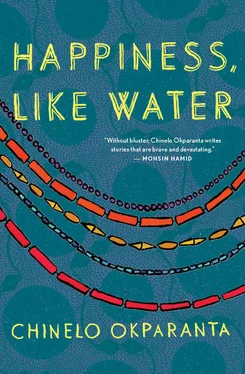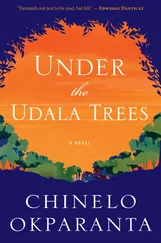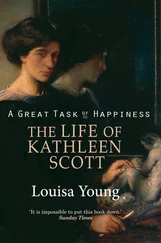I begin by telling him of the oil spill in America. He seems to be unaware of it. I tell him that it has drawn some attention for Nigeria, for our plight with the Niger Delta. I tell him that going to America will allow me to learn first-hand the measures that the US government is taking in their attempt to deal with the aftermath of their spill. Because it’s about time we Nigerians found ways to handle our own.
He doesn’t question me about how I expect to connect with the US government. He doesn’t ask how exactly I expect to learn first-hand about their methods of dealing with that type of environmental disaster. Perhaps, having made a life for himself here in Nigeria, he, too, has begun to adopt the Nigerian mentality. Perhaps he, too, has begun to see the US the way most of us Nigerians do: as an abstraction, a sort of Utopia, a place where you go for answers, a place that always has those answers waiting for you.
I tell him about the area around the Bonny River. I tell him that the vegetation there once thrived. That the trees grew tall, and from them sprang green leaves. And their flowers gave rise to fruit. Of course, that memory is not mine, I say. It is my mother’s. From a former reality, one too old to be my own.
I tell him that decades ago, before the pipes began to burst (or maybe even before Shell came into the area — and of course, these days it’s hard to remember a time without Shell), Gio Creek was filled with tall, green mangroves. Birds flew and sang in the skies above the creek, and there was plenty of fish and crab and shrimp in the waters below. Now the mangroves are dead, and the birds are gone. There are no fish, no shrimp, and no crab to be caught. Instead, oil shoots up in the air, like a fountain of black water; and fishermen lament that rather than coming out of the water with fish, they are instead harvesting Shell oil on their bodies.
I tell him that areas like these have undergone what amounts to the American spill, only every year for fifty years. Oil pouring out every week, killing our land, our ecosystem. A resource that should make us rich, instead causing our people to suffer. ‘It’s the politics,’ I say. ‘But I’m no politician.’ Instead, I tell him, I’d like to see if we can’t at least construct efficient and effective mechanisms for cleaning up the damage that has been done. I tell him that Nigeria will benefit from sending out students to study and learn from the recent spill in the US, to learn methods of dealing with such a recurrent issue in our own Niger Delta.
He nods enthusiastically at me. He says what a shame it is that the Nigerian government can’t get rid of all the corruption. He tells me that the government officials themselves are corrupt. ‘Giving foreigners power over their own oil, pocketing for themselves the money that these foreigners pay for the oil.’
I look at him, in his fancy suit and rings. I wonder if he is not himself pocketing some of that oil money. But something good must be made out of such an unfortunate event. And so, I don’t question the man in the suit about where the money for his rings or suit is coming from.
He fusses with the collar of his shirt and says, ‘Sometimes when Nigerians go to America, they get their education and begin to think they are too cultured and sophisticated to come back home.’ He pauses. Then, ‘How do we know that you will?’
I think of Mama. ‘I don’t intend to get lost in America,’ I say, more confidently than I feel. Because even as I say it, there is a part of me that is afraid that I will want to get lost in America. There is a part of me hoping that I will find that new life much less complicated, much more trouble-free than the one here. Still, I say it confidently, because saying it so might help me to keep Mama’s fear from becoming a reality. Because I know that it might break Mama’s heart if I were to break my promise to her. But mostly, I say it confidently because Gloria is on my mind, and if I am to be granted permission to go and be with her, then I must give the man the answer I know he wants: an emphatic vow that I will come back home.
He smiles and congratulates me as he hands me the green-coloured card. He takes my passport from me and tells me to come back in two days.
The sun is setting as I make my way down Walter Carrington Crescent. I look up. There are orange and purple streaks in the sky, but instead of thinking of those streaks, I find myself thinking of white snow, shiny metals reflecting the light of the sun. And I think of Gloria playing in the snow — like I imagine Americans do — lying in it, forming snow angels on the ground. I think of Papa suggesting that perhaps America would be the best place for me and my kind of love. I think of my work at the Federal Government Girls’ College. In America, after I have finished my studies, I’ll finally be able to find the kind of job I want. I think how I can’t wait to get on the plane.
I cross over to the next street. It is narrow, but there are big houses on each side of it, the kinds with metal gates, and fancy gatemen with uniforms and berets, and small sheds like minihouses near the gates, sheds in which the gatemen stay.
I imagine the insides of the houses: leather couches and stainless-steel appliances imported from America; flat-screen televisions hanging even in the bathrooms, American-style.
But the road just in front of these houses, just outside the nice gates, is filled with potholes, large ones. And in the spaces between the houses, that corridor that forms where one gate ends and the next begins, there are piles of car tyres, planks of deteriorating wood, layered one on top of another. Shattered glass, empty barrels of oil, sweet wrappers, food wrappers, old batteries, crumpled paper, empty soda cans.
I stop at the entrance of one of these corridors. Two chickens squirm about, zigzagging through the filth, jutting their necks back and forth, sniffing and pecking at the garbage, diffident pecks, as if afraid of poison.
I tell myself to continue walking, to ignore all of this foulness, just like the owners of the big houses have managed to do. Maybe it’s even their garbage that saturates these alleyways, as if the houses themselves are all that matter, and the roads leading to them inconsequential.
But for me, it is a reluctant kind of disregard that stems from a feeling of shame: shame that all that trash should even exist there, shame that empty barrels should be there, between the fancy houses, littering the roads after the oil they once contained has been made to do its own share of littering.
Several streets down, I find a hotel, not one of the fancy ones, more just an inn. The room to which I am assigned smells musty and stale, and I can feel the dust on my skin.
I scratch my arms with the edges of the green-coloured card. I think of the possibilities, of the many ways in which I might profit from the card. I am still scratching and making plans for America when I drift into sleep.
The story should end there, but it doesn’t. A person wishes for something so long that when it finally happens, she should be nothing but grateful. What sympathy can we have for someone who, after wanting something so badly for three long years, realizes almost as soon as she’s gotten it that perhaps she’s been wrong in wanting it all that time?
My second night at the inn, the night before I am to return to the embassy for my paperwork and passport, I think of Mama, her desire for a grandchild, and I think: Isn’t it only natural that she’d want a grandchild? I think of the small children emerging from the waters of the Delta covered in black crude. Their playground destroyed by the oil war. And I think: Who’s to say that this won’t some day be the case even in America? It all starts small by small. And then it gets out of hand. And here I am running away from one disaster only find myself in a place that might soon also begin to fall apart.
Читать дальше












